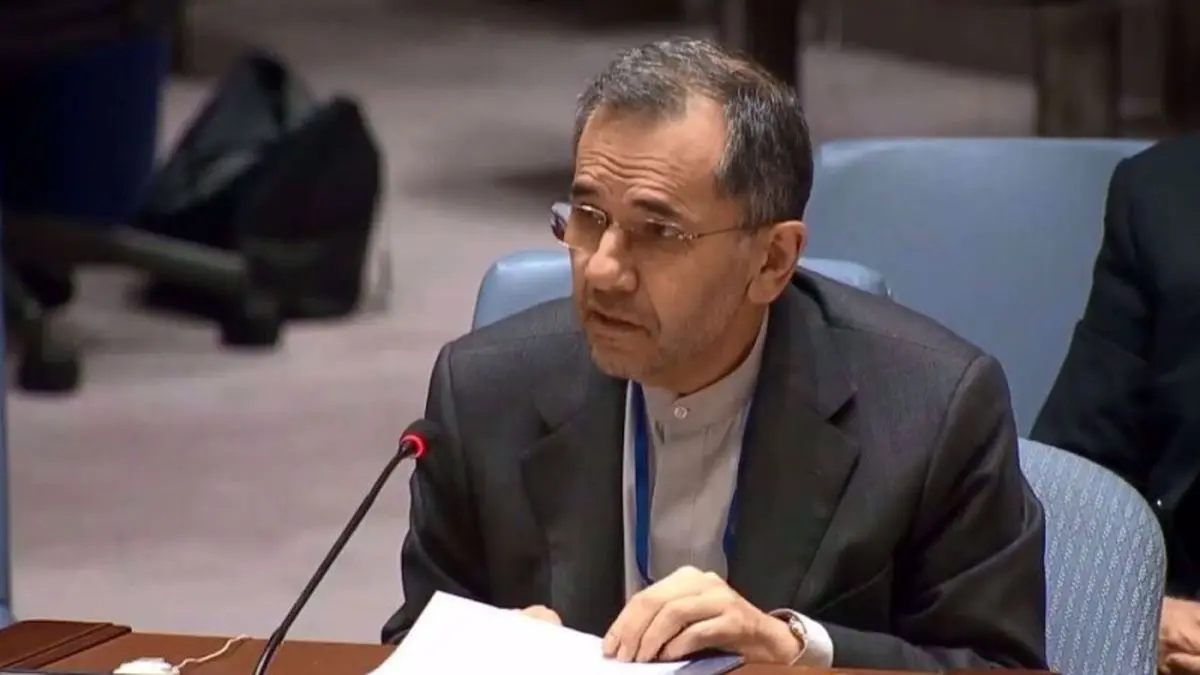Envoy warns against negative consequences of occupation on Palestine

Ambassador and Permanent Representative of the Islamic Republic of Iran to the United Nations expressed Iran's support for raising international awareness regarding the negative consequences of the occupation and embargo on the Palestinian people.
"Iran fully supports raising international awareness regarding the negative consequences of the occupation and embargo on Palestinian people," Majid Takht Ravanchi said in a statement addressing the 43rd session of the Committee on Information.
At the outset, I would like to extend my gratitude to you and the other members of the Bureau for your able leadership of the Committee. The Islamic Republic of Iran associates itself with the statement made by the distinguished representative of Pakistan on behalf of the G77 and China.
We recognize the importance of the Committee on Information as the main intergovernmental policy-making body to provide guidance on UN policies in the field of communication and public information.
We also attach great importance to the work and the function of the Department of Global Communication (DGC) which aims at enabling the UN to establish better communication and connections with the international community and the people around the globe by addressing issues of high importance for the international community in an impartial and timely manner.
In today’s monopolized world of media, the DGC’s role is more crucial than ever in advancing the Organization’s wider objectives.
It must be able to convey accurate information to the attention of people all over the world in order to contain and counter disinformation of all forms in the global connectivity matrix.
Mr. Chairman,
Disparity in the use of information and communications technology has immeasurably widened the existing gaps between the developed and developing countries in the field of public information and communication technology.
Regrettably, certain countries continue to take advantage of their monopoly of modern communication technologies to distort and fabricate the events and realities in other countries, especially in the developing world, thus tarnishing the image and damaging the interests of the latter.
Such a detrimental and undesirable situation demands immediate attention from the international community.
Bridging the digital divide between the developed and developing world and placing information and communications technologies at the service of development in a fair and just manner is a must, and the DGC is expected to play a more effective and greater role in this domain by, inter alia, raising public awareness.
We underscore the importance of ensuring that the use of such technologies should be fully compatible with the purposes and principles of the Charter of the United Nations and international law, in particular the principles of sovereignty, the non-interference in internal matters, and the internationally recognized rules of civil coexistence and friendly relations among States.
In this regard, we reiterate our strong rejection and condemnation of the misuse of such technologies, in particular, through the proliferation of misinformation and disinformation by certain countries against developing countries, including my Country.
Distinguished Colleagues,
Under current circumstances arising from COVID-19, the impact of Unilateral Coercive Measures (UCMs), in particular illegal sanctions, imposes additional economic, commercial, and financial burdens on targeted countries.
These measures, seriously jeopardize the targeted countries’ economic growth while also hampering easy access to basic medical items and requirements through tight restrictions on foreign exchange resources in grave violation of international law, international humanitarian law, and the UN Charter.
In this regard, we urge the Department to continue its efforts towards raising awareness and disseminating information on the negative impact of UCMs on the affected countries and their civilian population.
The current climate of intolerance and hate toward Islam and Muslims in various parts of the world provoked by anti-Muslim media outlets and the inflammatory as well as bigoted rhetoric of certain political figures in the West is a matter of grave concern.
It is high time for the international community to condemn this phenomenon and take the necessary measures to combat islamophobia and the violation of the basic human rights of Muslims.
In that regard, we urge the DGC to continue its efforts in addressing this phenomenon, in particular by commemorating March 15 as the International Day to Combat Islamophobia designated by the GA landmark resolution A/RES/76/254.
The Islamic Republic of Iran continues to emphasize the important responsibility of the United Nations vis-à-vis the Question of Palestine.
Iran fully supports raising international awareness regarding the negative consequences of the occupation and embargo on the Palestinian people.
We commend the DGC for its special information program on the question of Palestine, including the training program for Palestinian journalists.
In conclusion, we underline the growing demand for content in languages in addition to the official languages of the United Nations.
We encourage the Secretariat to continue exploring alternatives to ensure the issuance of various media products in all official languages and non-official languages, including the Persian language which is spoken by more than one hundred and twenty million people around the globe and widely regarded as the root of great culture and civilization and source of understanding and solidarity among several nations.
Thank you, Mr. Chairman.
